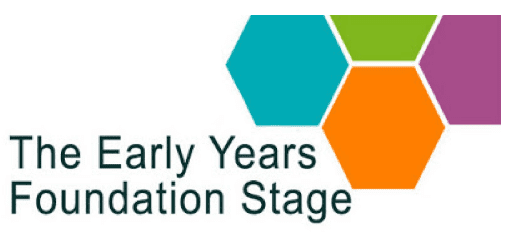
Kiwi Class – Mango Class
Our Reception classes have a friendly atmosphere with an ‘open door’ policy which means that you are always welcome to come into the classroom to share your child‛s achievements and chat to us.

In Reception, we follow the Early Years Foundation Stage (EYFS) framework. We build on the experiences and knowledge that children bring from nursery, preschool and home. The emphasis is on active learning through play, talk and thought. Children will be encouraged to engage in sustained activity with and without adult support, and there will be lots of opportunities to develop independence and confidence in different sized groups.
Please click here to read the Parent’s Guide
‘What to expect in the Early Year’s Foundation Stage’.
The 7 areas of Learning
The Early Years Foundation Stage curriculum is divided into seven different areas of learning. There are 3 Prime Areas and 4 Specific Areas;
Prime Areas
PERSONAL, SOCIAL AND EMOTIONAL DEVELOPMENT
Children learn to work with and alongside others, taking turns and sharing. They learn to identify how they are feeling and express themselves appropriately. They form friendships and learn to become independent and self-motivated learners.
COMMUNICATION AND LANGUAGE
Children listen to and join in with stories and rhymes. They talk to each other and adults during their play as well as in small and large groups. They explore the meaning of new words and build their vocabulary. They use language confidently in their play.
PHYSICAL DEVELOPMENT
Children learn and perfect fine and gross motor skills. They also move in a variety of ways with greater control of their bodies. They are able to use a range of equipment, including scissors and mark making materials.
Specific Areas
LITERACY
Children begin to learn about letters and words, and master skills necessary to learn to read and write. They explore a range of books and use writing to support their play.
MATHEMATICS
Children learn about numbers, shapes and measurements. They sing number songs and play counting games. They learn mathematical language and use mathematical skills in their play e.g., in the sand, water and role play. They learn to recognise numbers.
UNDERSTANDING THE WORLD
Children learn and talk about their environment, past and present events and about how things happen and how things work. They learn about their own culture and community as well as those of others. They learn how to use technological equipment and tools, including the computer.
EXPRESSIVE ARTS AND DESIGN
Children take part in creative activities such as painting, music, drama and dance. They learn to use their imagination, to listen and to observe.
